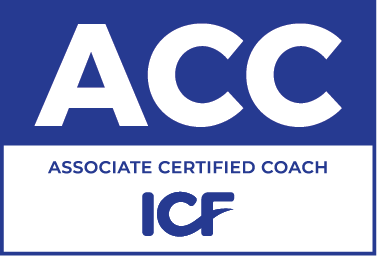This is a Success Story! How to Achieve Patient Power-Lessons 1-10, Lessons 11-22 to follow
My story started 19 years ago (as has been written about in this blog)…in July of 1990. I was diagnosed with a brain tumor; this tumor has been a teacher, a distraction…an enemy. I was barely out of my twenties when I was diagnosed (or at least what it was believed to be at that time). Jamie (my daughter-as has been written about in this blog), was a year old. I am approaching fifty, and she’s about to turn twenty. Where did the time go? I think to myself, “life is half spent before we know it”. It’s time for me to begin living the rest of it.
I would be remiss however, if before moving forward I did not share what I’ve learned. There is a saying that experience is the best teacher, but the tuition is high. Ain’t that the truth! While I would not have chosen these circumstances-they happened to me, and because of them I have gleaned a great deal of knowledge about a very particular area…doctors, the business of medicine, and being a patient. These are my lessons:
Lesson 1
Opinions, opinions, opinions. It’s said you can take opinions all day long. You can…and you should. The more complicated the medical issue, the more opinions you should get. Try and get as many as your insurance will pay for or you can afford. It can be overwhelming to get/have many opinions; it’s definitely easier to get only one-but what price easy? The one opinion you have may be a wrong opinion. It is so worth taking the time and doing the research. The best solution for you will become clear. I know from experience that this is true.
Lesson 2
“Fools rush in where angels fear to tread”. Take your time. Very seldom will the extra time you take to make the right decision rob you of your life. However, making the wrong decision might very well do just that.
Lesson 3
“It takes a village to raise a child”…it also takes a village to heal a patient. It’s very difficult when you’re in the eye of the storm, to be a “clear thinker”. You need your friends, and your extended family to be out there researching, scheduling, and supporting you. I know in my case I would not have had as positive an outcome, were it not for my “village”.
Lesson 4
Doctors are just people. We put doctors on a pedestal. We believe them to have our best interest in mind, and I’m sure most do. However, don’t forget that doctoring is also a business. Doctors, either consciously or unconsciously make decisions based on their ego, their desire to be noticed in the medical field, maybe even based on bills they need to pay. This may sound callous, but think about it. Haven’t we all made a business decision here and there based on bills we have to pay? Doctoring is a business. They do what they have to do-you do what you have to do. Again being aware that this may be a part of the landscape is part of having power as a patient.
Lesson 5
Doctors never speak out against one another, no matter how obvious a misjudgment may be. They might say with regard to another doctor’s opinion something like, “I don’t get that”, or in the case of mistakes already made “no sense talking about that now, it’s water under the bridge”. If one doctor doesn’t feel that another doctor’s opinion is right, he will not say so, this seems to be some kind of medical oath, “ye shall not disagree with a colleague”. This is frustrating and upsetting when all you want to do is make the best decision. It is worse, when you don’t know that this is going on under the surface of your consultation. Again, knowing is part of Patient Power.
Lesson 6
Doctors will seldom say “I don’t know”. How much easier the process would be if the doctors that don’t know, just said it. You could then take this non-information and move on, but instead this “not knowing doctor”, can really slow down, and “poision” the process. You end up wasting valuable time on an opinion that should not even be in the mix. This makes the process more difficult, but being aware that it does exist, keeps you aware and on your toes, and a better patient.
Lesson 7
Use the Internet. If you don’t have access, find someone else that does. The Internet is invaluable. When I had my first surgery in 1990 there was no real Internet; what did exist was extremely slow, and had very limited information. These days, if you dig, you can find out so much, not only about your illness, but about your doctors background as well. There are services that allow patients to comment, even rate doctors with whom they’ve consulted. This is good information. Information is part of Patient Power.
Lesson 8
With regard to these doctor rating sites. More information is better. I like the fact that these sites are out there; these services keep doctors on their toes. If a doctor asks you to sign a legal document agreeing that you will not participate on one of these sites (I’ve heard that this is something that some doctors are doing now), walk away. If a doctor is that worried about you going online and making a negative comment about them, then this is not the doctor for you.
Lesson 9
Do not allow any doctor to make you feel as though your questions are a waste of time, or that the questions are stupid, or that you’re stupid. Again, not all doctors know all things. Sometimes condescension is “I don’t know” expressed differently.
Lesson 10
Always trust your gut. I asked one of my doctors about a certain therapy, and he emphatically told me that the therapy was not for me…turns out he was wrong, this therapy is what may have saved my life. When he told me it was not for me, it didn’t sit right. I trusted my gut and pursued it anyway.

